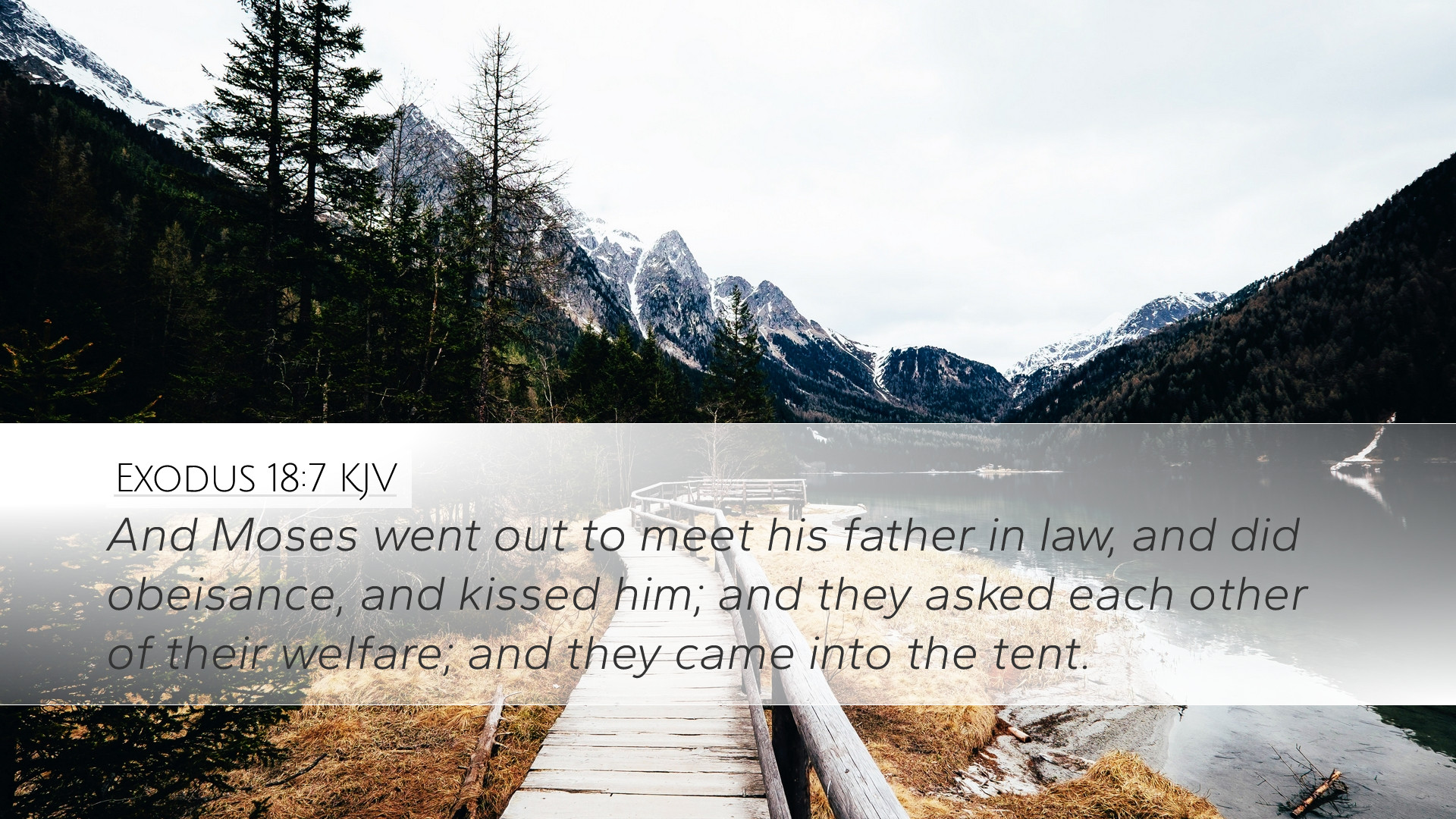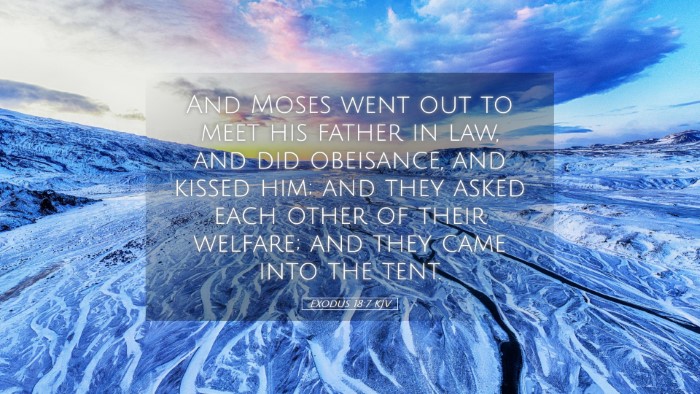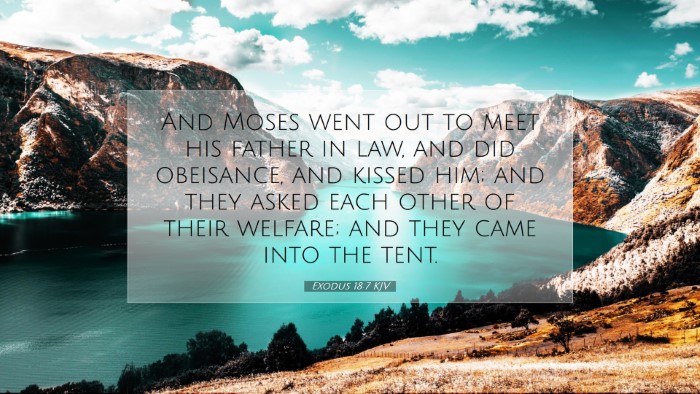Bible Commentary on Exodus 18:7
Exodus 18:7 states: "And Moses went out to meet his father-in-law, and did obeisance, and kissed him; and they asked each other of their welfare; and they came into the tent." This passage presents a brief but significant moment between Moses and Jethro, showcasing both the importance of relationships and the cultural norms affording respect and hospitality.
Contextual Analysis
Exodus 18 occurs shortly after the Israelites' deliverance from Egypt, and it is characterized by Moses’ leadership and the establishment of a new community of faith. Jethro, Moses' father-in-law, comes to meet him with the intent of understanding Moses' situation and offering support.
Moses' Approach to Jethro
Matthew Henry emphasizes Moses' humility and respect in his encounter with Jethro:
- Respect for Authority: Moses shows deference to his father-in-law by going out to meet him. This act was customary in the culture to honor one's elders.
- Greeting and Welfare Inquiry: The mutual inquiry into each other’s well-being illustrates the importance of relational bonds and community support.
Cultural Implications
According to Albert Barnes, this verse highlights the societal norms of ancient Near Eastern cultures, where greeting rituals held substantial significance:
- Salutation Practices: The act of kissing and bowing signifies profound respect and establishes the tone of their interaction.
- Family and Community: The meeting underscores the integral nature of family ties in leadership, and how they can provide strength and wisdom.
Theological Insights
Adam Clarke notes the theological dimensions of Moses’ actions:
- Value of Relationships: God's call on Moses is not just a solitary endeavor; it involves the support and cooperation of others, emphasizing the community aspect of spiritual leadership.
- Openness to Counsel: Moses’ willingness to receive Jethro, who is a priest of Midian, denotes an openness to outside wisdom and guidance, reflecting a teachable spirit.
The Role of Jethro
Jethro serves as a pivotal figure, representing wise counsel:
- Advisory Role: Jethro’s coming signifies more than a familial visit; he brings insights that will later encourage Moses to delegate his responsibilities, thereby improving governance and church leadership models.
- Recognition of Divine Work: Jethro acknowledges God’s hand in the deliverance of Israel, which represents the affirmation of God's purposes through leaders of all backgrounds.
Spiritual Application
This encounter provides numerous applications for modern believers:
- Value of Hospitality: Just as Moses welcomed Jethro, we are reminded of the importance of being hospitable and welcoming to others in our lives.
- Seeking Support and Guidance: Leaders are encouraged to seek wise counsel, recognizing that leadership is often best executed within a community context.
- Interpersonal Relationships: The passage invites us to consider how we relate to our elders and those in authority, emphasizing respect and kindness in our interactions.
Conclusion
Exodus 18:7 serves as a rich tapestry of relational dynamics, emphasizing the importance of respect, hospitality, and the pursuit of wise counsel. As spiritual leaders, scholars, and students reflect on this passage, they are called to embrace the lessons of humility and interpersonal relationship, seeking community support while fulfilling their divine call.


